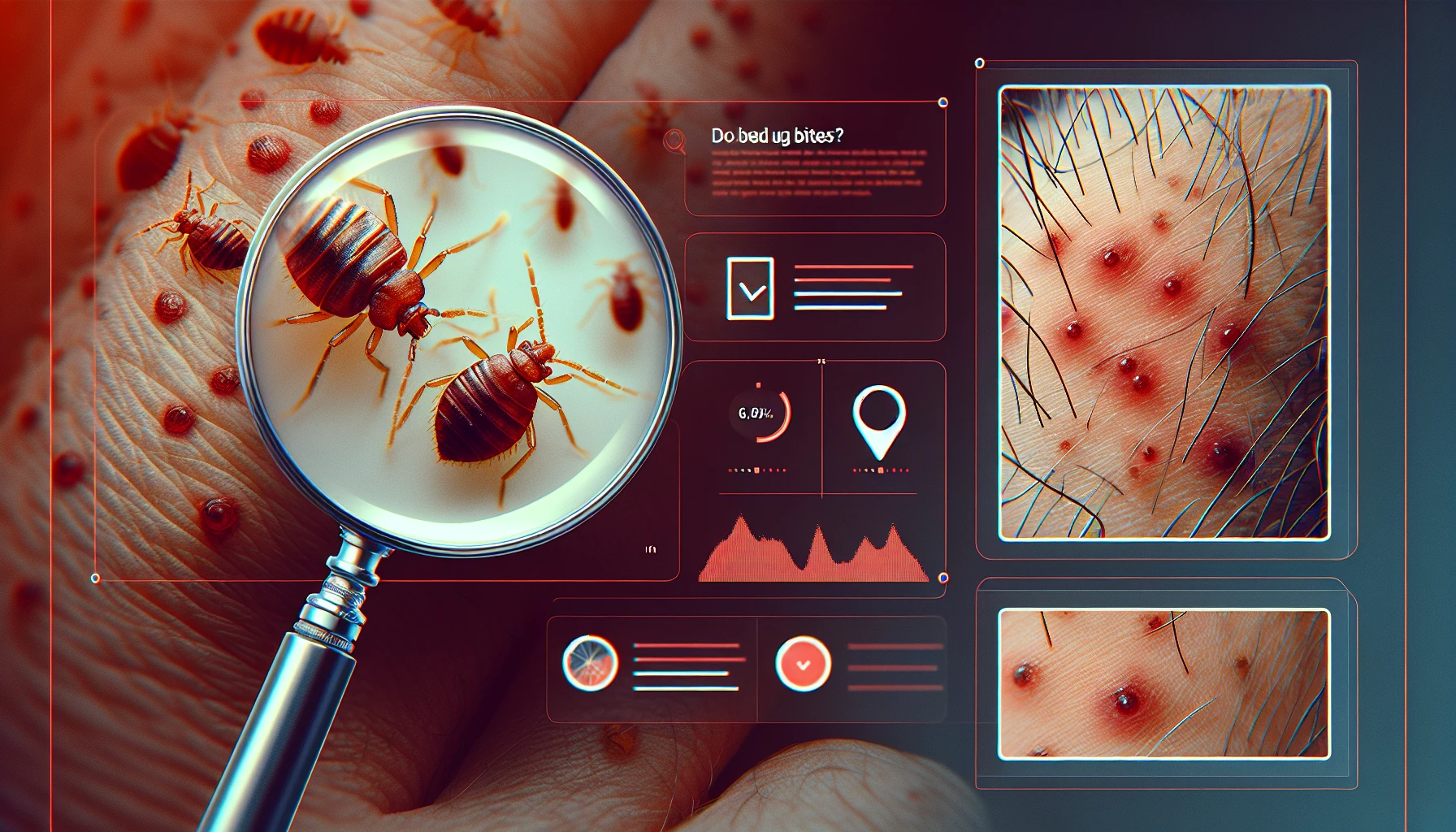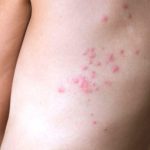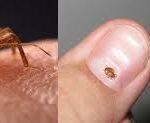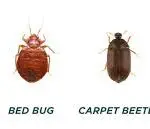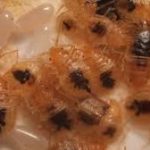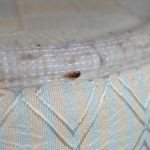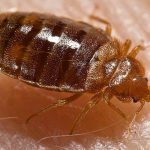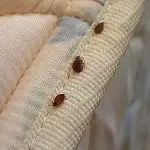Do Bed Bug Bites Itch? Uncovering the Irritating Truth
Introduction to Bed Bug Bites
A tiny nemesis lurks in the shadows of bedrooms across the globe — the bed bug. These stealthy, nocturnal critters creep out of their hiding places in the dead of night, drawn to the carbon dioxide we exhale as we dream. But what exactly brings bed bugs to nibble on us, and why is there a common belief that their bites don’t itch?
To understand the itch, or the perceived lack thereof, we must first delve into the world of Cimex lectularius — the scientific name for these unwelcome houseguests. Bed bugs are not simply pests; they are masters of survival, with a preference for feasting on human blood. Armed with two straw-like tubes, one injects an anticoagulant to keep our blood flowing, while the other siphons off our life-giving plasma. This process is usually undetected by the slumbering host, thanks to a little anaesthetic included in their saliva cocktail.
The notion that bed bug bites are itch-free is a misconception spawned perhaps from their saliva’s temporary numbing properties. But as anyone who has been the feast for a bed bug can attest, the aftermath can indeed be quite itchy. The itch is an allergic reaction to the saliva and can range from a mild annoyance to a severe and uncomfortable rash.
Imagine this scenario: you wake up to a series of small, red marks lining your arm, a memento from a bed bug banquet the previous night. At first, it’s just a curious sight, but as the day progresses, the itch sets in, relentless and demanding attention. This is a stark reality for many, dispelling the myth that bed bug bites are a mere visual nuisance.

So yes, while bed bugs might emerge under the veil of night with an anesthetic in tow, the initial lack of itch fools no one for long. Understanding these clever intruders is the key to recognizing the true irritating truth behind their bites. As we continue to sleep in our cozy beds, the bed bugs too are busy at work, leaving us with lingering reminders of their presence that itch with a distinct persistence.
What Makes Bed Bug Bites Itch?
Have you ever woken up with a series of small, red, itchy welts on your skin and wondered what caused this nighttime nuisance? The culprits are likely bed bugs, tiny, elusive pests that make a meal out of your blood while you slumber. But why do their bites itch so maddeningly? The answer lies in your body’s reaction to bed bug saliva.
When a bed bug sinks its mouthparts into your skin, it injects a bit of its saliva. This saliva is a cocktail of proteins and chemicals, some of which prevent your blood from clotting and ensure a smooth, uninterrupted feast. However, your immune system sees this saliva as an invader, triggering an allergic reaction that results in swelling, redness, and that all-too-familiar itch. It’s your body’s defense mechanism kicking into high gear to fight off the perceived threat.
Some people might reminisce about a camping trip gone awry, where they first experienced the wrath of multiple insect bites. However, unlike the occasional mosquito or flea bite, bed bugs can launch a full-fledged assault night after night, leading to a greater accumulation of itchy, inflamed spots that beg to be scratched. It’s not just the physical discomfort; the constant itch can wreak havoc on your peace of mind, too.
The Itch Factor: More Than Just a Nuisance
Scratching provides temporary relief, but it’s a double-edged sword. Too much scratching can lead to breaks in the skin, opening the door to secondary infections. This ongoing battle against itchy bed bug bites can become a significant stressor in your daily life. As if dealing with these stealthy creatures wasn’t enough, now you’re also fighting your own reflexes every time an itch strikes.
Interested in delving deeper into the effects of bed bug bites and how to treat them? Check out this informative video:
For those seeking to better understand the tell-tale signs of these irritating insects, take a look at this detailed guide which dives into early detection and prevention of bed bug infestations. It’s essential to identify the problem as soon as possible to minimize the itching and maximize your chances of a good night’s sleep.
In conclusion, bed bug bites itch because of your body’s reaction to the bed bug’s saliva – an itchy reminder that these creatures have paid you a visit in the night. So next time you find yourself dealing with these tiny, pesky insects, remember that the itch isn’t just skin deep; it’s a sign of an unwelcomed guest that needs prompt attention.
Identifying Bed Bug Bites
Have you ever woken up to a series of red, itchy welts on your skin and wondered if you’ve been the midnight feast for a party of bed bugs? It’s a skin-crawling thought indeed! Bed bug bites can easily be mistaken for other insect nips, but there are a few telltale signs that can help you uncover the irritating truth. Let’s play detective and decode those itchy little mysteries.
First off, bed bug bites often appear in a straight line or cluster, as if the critters have been doing the conga across your skin while you were dreaming. Unlike mosquito bites that prefer to go solo, bed bug bites flock together, creating an infuriatingly itchy constellation. They typically manifest as raised, flat areas that can become red and swollen, and yes, they itch like crazy!
Now, real talk from personal experience – these bites can resemble a battlefield map marking the spots of numerous skirmishes. After a peaceful night at a quaint B&B, I once found a row of angry red dots marching down my arm. A closer look revealed the characteristic line pattern, a bit like a rash that chose to play dots-and-dashes on my skin. This discovery led to a quick inspection of the bed, where – lo and behold – I spotted tiny reddish-brown bugs scuttling away from the light.
Fret not, though! Not all bites mean bed bugs; some might just be from that mosquito you didn’t manage to swat. To differentiate, consider the location of the bites. These sneaky biters love to dine on exposed skin while you’re in la-la land. Think arms, shoulders, neck, and face. If it’s covered by pajamas, it’s less likely to be a bed bug’s midnight snack.
On the topic of recognizing bites,
Identifying bed bug bites correctly is crucial, and for more in-depth information, you could delve into the wealth of knowledge in our article on Bed Bug Rash 101: Symptoms, Treatments, and Prevention. It’s an eye-opener that could save you from scratching your skin to oblivion.
Furthermore, timing is a significant clue. Bed bug bites might not register immediately but can develop over a few days. Pay attention after travel, especially if you’ve been lodging at places with a high turnover of nightly guests, which bed bugs find irresistible.
With these markers in mind, you’ll be better equipped to pinpoint whether those itchy souvenirs were left by bed bugs or merely an encounter with a hungry mosquito. In the war against the bite, knowledge, indeed, is the first line of defense!
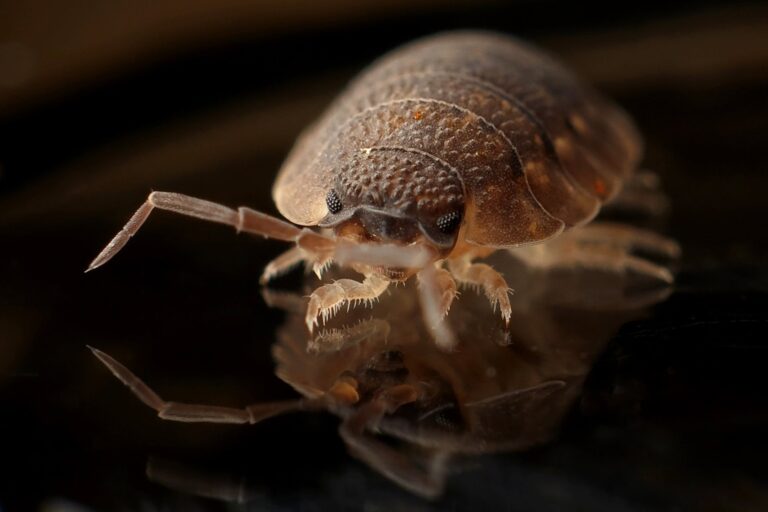
The Duration and Severity of Itching
Imagine you’ve just returned from a bright and sunny vacation, bringing back not just souvenirs but also unwanted hitchhikers known as bed bugs. A few nights later, you wake up to a constellation of irritating red welts, the tell-tale signs of a nocturnal feast. Yes, bed bug bites often wield a persistent itch that can test the patience of even the most stoic individuals. But how long does this itching last, and what governs the severity of such an irksome sensation? Let’s scratch the surface to find out.
First and foremost, not everyone reacts the same way to these critters’ nibbles. For some, the itchiness may surface within hours, while others might only start to notice the urge to scratch days later. However, once that itch kicks in, it usually sticks around like an unwanted house guest. On average, the itching from bed bug bites can last anywhere from a couple of days to two weeks, sometimes even stretching out to a month if you’re particularly sensitive or if the bites become infected due to overzealous scratching.

The intensity of the itch hinges on several factors. It’s like a game of itch roulette: your own immune system, the number of times you’ve been their snack, and the location of their banquet on your body—all roll the dice on how much you’re going to want to scratch. Those with more sensitive skin may experience more pronounced responses, and increased exposure to bites can actually lead to a heightened sensitivity over time. Furthermore, bites in areas with thinner skin (like the forearms or neck) can feel itchier compared to areas with a thicker skin armor.
Moreover, let’s not forget the psychological factor. Knowing that these tiny trespassers have been parading on you while you slumber can amplify the itchiness to almost unbearable levels. It’s a mind-over-matter battle, where even the mere thought of bugs can send a phantom tickle across your skin.
To prevent these vampiric bugs from turning your life into a scratch marathon, familiarity with bug bite management and preventive measures is key. Embracing strategies like regular bed inspections and maintaining a clutter-free environment can keep these pests from making your home their dining room.
So there you have it—the itch saga of bed bug bites isn’t one to be taken lightly. Understand the rhyme and reason behind the itchiness duration, and arm yourself with the knowledge to curb their feast and your scratch fest. Just like ensuring you don’t bring any surprise souvenirs from your trips, preventing bed bug encounters is always better than enduring their maddening itches.
Treating Itchiness Caused by Bed Bug Bites
Suffering from the dreaded itch of bed bug bites? You’re not alone in this scratchy scenario. It’s a well-known fact amongst the bite-bitten battalion: those little critters can cause quite the annoying itch! But fear not, intrepid sleepers, there’s a whole arsenal of remedies you can employ to reclaim your comfort, and we’re here to guide you through them.

Imagine you’ve had a long day, and all you crave is the sweet surrender to sleep. But as slumber approaches, so does an all-too-familiar itch. Those bed bug bites start singing the songs of their people—scratch, scratch, scratch! Let’s halt their choir with some time-tested home remedies. A cool compress, my friends, is your first ally. Applying a damp, cold cloth to the itch site can bring instant, though temporary, relief. It’s like telling those bites, “Not today!”
Next up in our itch-busting lineup are the over-the-counter superheroes—antihistamine creams and hydrocortisone. A dab of these on the affected areas can help reduce swelling and redness while putting the brakes on the itch. Remember folks, when dealing with bed bug bites, less is often more. Avoid going overboard with applications; a thin layer does the trick!
If you’re feeling a bit DIY and want to embrace the essence of your kitchen, why not whip up a baking soda paste? Mix one part baking soda with three parts water and apply it to the bites. It’s like a soothing mask, but for your itchy spots— a chill spa treatment to calm the irritation. Baking soda has been the go-to for generations for a reason—it’s like the old, wise grandmother of itch remedies.
For some of us, that anti-itch mission can get serious, and when home remedies don’t cut it, it’s time to hit the pharmacy aisle. There’s a plethora of anti-itch products available, but look for those containing pramoxine or benzocaine if you want that itch nailed down effectively. It’s like bringing in the big guns for your skin—safety on, of course!
While these remedies are at your disposal, it’s essential to remember that the best offense is a good defense. Keep those bed bugs at bay with regular cleaning and inspections, because the only thing better than treating an itch is not having one in the first place.
When to Seek Medical Attention
While most bed bug bites are merely a nuisance, there are instances when they lead to more than just an itch. Imagine this: you wake up one morning with a constellation of red welts splayed across your arms and neck. The itching is relentless. While many will reach for home remedies and over-the-counter solutions, there’s a point where professional medical advice becomes not just a consideration, but a necessity.
Picture Sarah, who thought her bed bug bites were typical, only to experience swelling that extended far beyond the bite site. Or consider John, whose bites persisted for weeks, unaffected by anti-itch creams, growing more inflamed as days passed. These are real-life cases where a tap on the doctor’s door is warranted. When bites appear excessively swollen, exhibit signs of infection like oozing or severe redness, or last longer than a normal healing period, it’s time to raise the white flag and seek medical intervention.
For those with allergic reactions, a chorus of alarm bells should ring. If bed bug bites cause shortness of breath, a feeling of tightness in the chest, or intense hives, this constitutes a medical emergency. Even a history of mild allergies could manifest unexpectedly severe reactions upon new exposures to bed bug bites. Hence, anyone with known allergies, particularly to insect bites or stings, should be on high alert and ready to consult a healthcare provider.
It’s not all about the physical symptoms, though. The psychological impact, often underestimated, commands attention too. Sleepless nights, anxiety about future infestations, and a persistent fear of being bitten can take a significant toll. When psychological distress from bed bug bites disrupts daily life, a conversation with a mental health professional could provide the coping strategies necessary to weather the storm.
Finally, let’s address the proactive among us. Is there a way to preempt these itchy invaders from wreaking havoc on our skin and sanity? Certainly! The video below offers insights into differentiating bed bug bites from others and provides helpful tips on recognizing when professional advice is indispensable.
In conclusion, when it comes to bed bug bites, vigilance is your best defense. Keep an eye out for severe or odd reactions, be aware of your allergic sensitivities, and don’t hesitate to reach out for medical help when the situation seems out of hand. By understanding when to seek professional advice, you can ensure that the irritating truth about bed bug bites doesn’t itch away at your well-being.
Preventing Bed Bug Bites
When it comes to the insidious nature of bed bug bites, prevention is your best ally. Imagine checking into a cozy hotel room, unsuspecting of the tiny critters lurking in the shadows. Before you know it, you wake up with a constellation of itchy welts. This scenario is all too common, but fear not, for there are effective strategies to shield yourself from these nocturnal nibblers and keep your home bed bug-free.
Scrutinize Your Sleeping Quarters
A key tactic in the battle against bed bug bites is vigilance. Upon entering any new lodging, be it a hotel or a rented apartment, make a beeline for the bed. Pull back the sheets, inspect the mattress seams, and peer behind the headboard. These elusive pests are fond of tight, dark spaces. Spotting tiny blood spots or shed skins? It’s a tell-tale sign that bed bugs have claimed this territory before you.
Bug-Proof Your Belongings
Your luggage is a Trojan horse for these unwelcome guests. To avoid an unintentional invite, place your bags on a luggage rack instead of the bed or floor. Better yet, encase your suitcase in a protective cover—think of it as armor against the bed bug brigade.
Embrace a Clutter-Free Lifestyle
Back at home, decluttering isn’t just about aesthetics; it’s a strategic move. A minimalist environment is less accommodating to bed bugs, leaving them fewer places to hide and breed. Regularly vacuuming your abode, particularly the cracks and crevices, can suck away any would-be invaders, keeping the itch at bay.
In our endeavor to maintain a bed bug-free existence, let’s get visual. The following video offers practical insights on halting a bed bug invasion before it starts. Remember, an ounce of prevention is worth a pound of cure!
Dress Your Bed in Defensive Linens
Investing in bed bug-proof mattress and pillow encasements is like setting up a fortress around your sleeping space. These finely woven fabrics are designed to keep the bugs out and to ensure any that do find their way in, don’t escape alive. It’s a simple solution that packs a mighty punch against those pesky biters.
Get Proactive with Pest Control
Detecting the early signs of bed bug activity is crucial, and sometimes, that requires a professional eye. Enlisting the help of a pest control expert for routine inspections can catch an infestation in the bud, saving you from a full-blown bed bug bonanza. Better safe than scratchy, as they say.
By adopting these strategies, you are fortifying your personal space against the bed bug assault. Keep your eyes peeled, your bags sealed, and your living areas spick and span, and you’ll drastically reduce the chances of enduring those torturously itchy bites.
Mitigating an Infestation
Have you ever woken up with an unexplained itchy welt? You might need to consider whether bed bugs have declared a silent war in your sanctuary. Let’s peel back the covers and reveal how to spot these crafty critters early on. Vigilance is your first line of defense; be on lookout for tiny blood spots on your sheets or a subtle sweet scent—it might not be your perfumed fabric softener, but a sign of a bed bug caucus!

Encountering tiny, discarded exoskeletons around your bed frame? That’s bed bug couture – their fashion of shedding skins as they grow. As distasteful as it sounds, these little intruders can slide into the slimmest of crevices, making them incredibly challenging to evict without a keen eye. Noticing dark, pepper-like dots? It’s a telltale trail – bed bug excrement. Yes, we’re getting into the nitty-gritty, but spotting these signs can spare you many itchy awakenings.
If you confirm an infestation, it’s paramount to act swiftly. Strip your bed, inspect all nooks and crannies, and toss your linens in the wash with the hottest water setting. A vacuum champion can be your ally, so mobilize it to suck up any visible offenders and their secret hideaways. For belongings that can’t be washed, meet the heat treatment—seal them in bags and introduce them to a few hours of sunbathing. Sorry, bed bugs, no SPF will save you!
However, let’s not forget that some invasions require the big guns. Professional extermination services are your cavalry charging over the hill when the battle gets tough. These experts come armed with an arsenal of tools and tactics that your vacuum and washing machine could only dream of. They can bring peace back to your bedroom domain with a strategic plan tailored to show those bed bugs the door—permanently.
By embracing early detection and proactive control measures, you can reclaim your realm from the jaws (or rather, the beaks) of these nightly nuisances. Remember, the bite might be the first sign, but it’s the action you take afterward that truly defines the itch-factor of your story.
FAQs About Bed Bug Bites and Itching
The mere thought of bed bugs can make your skin crawl, and if you’ve ever had the misfortune of an encounter, you know the itch can drive you up the wall. Journey with me as we scratch the surface on those pesky bites they leave behind, and tackle some of the most nagging questions about these night-time nibblers.
Why Do Bed Bug Bites Itch So Much?
Imagine you’re fast asleep, dreaming of sandy beaches and then bam! You’re rudely awakened by an itch that just won’t quit. That’s the trademark of a bed bug soirée on your skin. These little vampires inject an anticoagulant and an anesthetic that not only keeps your blood flowing but also ensures you don’t feel their bite—until you do. Once the anesthetic wears off, your body reacts to the irritants with that all-too-familiar itching sensation.
Can Everyone Tell When They’ve Been Bitten?
Picture this: You and your friend go on a weekend getaway, sharing the same room. You wake up looking like you’ve got a constellation map on your arms, but your friend seems untouched. What gives? Well, it turns out that reactions to bed bug bites are as unique as fingerprints. Some people might get red welts, while others don’t show any signs at all. It’s like a bite roulette, and unfortunately, you just hit the itching jackpot.
How Long Does the Itch Last After a Bed Bug Bite?
So you’ve got the bites, and now you’re timing how long until the itch hits the road. Typically, you’re looking at a few days to a couple of weeks of annoying itchiness. It’s like that one guest at a party who doesn’t get the hint that it’s time to leave, lingering long after the music has stopped.
Are There Any Home Remedies to Ease the Itching?
When those bed bug bites have got you clawing at your skin, fear not! There’s a buffet of home remedies you can try. Slap on some baking soda paste, have a dab of apple cider vinegar, or soothe the area with aloe vera. It’s like a DIY spa day for your skin—but with a less glamorous cause.
And, to illustrate the plight of the late-night itches, here’s a snapshot that reflects the aftermath of bed bug bites:

When Should You Seek Professional Medical Advice?
Look, most bites from these critters are more annoying than harmful. But let’s be real—if you’re having an extreme reaction, like serious rashes or, worse, an allergic reaction, then it’s time to call in the cavalry. No shame in seeking a doctor to get some relief. It’s important to keep an eye on any symptoms that escalate beyond the basic itch.
